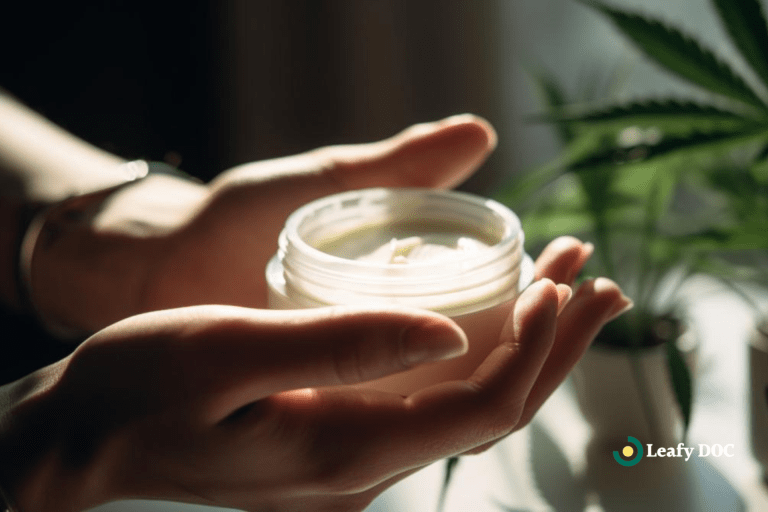Endometriosis
What is endometriosis?
Endometriosis is a disorder in which tissue similar to the tissue that usually lines the womb grows outside the uterus. Endometriosis typically involves ovaries, fallopian tubes, or pelvic tissue. Researchers think that approximately 6 ½ million women in the United States have endometriosis. Endometriosis affects nearly ten percent of reproductive-age females globally.
With endometriosis, the unwanted tissue mimics endometrial tissue by thickening, breaking down, and bleeding during the menstrual cycle but never exits the body. The surrounding tissue can become irritated and inflamed with severe or long-term cases, eventually developing scar tissue and adhesions.
Endometriosis often causes pain that may get more severe during the menstrual period. Fertility problems can develop when untreated, so it’s important to discuss your symptoms with a doctor as quickly as possible.
What causes it?
The reasoning behind endometriosis is unknown; however, there are some common risk factors that researchers are confident may lead to the condition. First, retrograde menstrual flow through the fallopian tube and into the pelvis is a likely cause of endometriosis. Next, endometriosis is found in family histories and medical records and is probably often inherited through genetics.
A weak immune system may also be caused by a disorder or cancer and can fail to attack endometrial tissue growing outside the uterus. Researchers have found that estrogen promotes endometriosis and may indicate an issue with the body’s immune system. Endometrial tissue could even be spread to the abdominal area during surgery, such as a C-section or hysterectomy.
What are the symptoms?
Endometriosis symptoms may include:
- Women with endometriosis typically report different types of pain, which include:
- Excruciating menstrual cramps. The pain usually worsens over time.
- Chronic pain in the lower back or pelvis
- Deep pain during or after sex.
- Intestinal pain
- Painful or difficult bowel movements or urination
- Fatigue
- Depression
- Anxiety
- Abdominal Bloating
- Bleeding or spotting between menstrual periods
- Infertility
- Stomach problems, including:
- bloating
- constipation
- digestion
- diarrhea
- constipation
- Nausea
How is it diagnosed?
If you have symptoms of endometriosis, there are a few ways a doctor can find out for sure:
- Your doctor can perform a pelvic exam to feel for large cysts or scars behind your uterus.
- Your doctor may do an ultrasound or use a wand-shaped scanner to check for ovarian cysts.
- Magnetic resonance imaging (MRI) is a standard imaging test to look inside the human body.
- Laparoscopy is a surgery where a doctor can view your pelvic area to find endometriosis tissue. This is the only 100 percent accurate method to know if a patient has endometriosis.
Can Endometriosis be prevented?
Endometriosis is unpreventable, but there are ways to reduce your chances of developing the condition. Estrogen is the hormone in your body that thickens the uterus lining during a menstrual cycle. By lowering these levels, you can prevent endometrial tissue from forming.
To maintain lower estrogen, you can:
- Talk to your doctor about hormonal birth control methods with lower doses of estrogen.
- Exercise at least five hours weekly to maintain a lower body fat percentage.
- Avoid large amounts of alcohol.
- Avoid a large number of caffeinated drinks.
Can Medical Cannabis Help with Endometriosis?
Hormonal birth control can help relieve pelvic pain during a menstrual period.
Gonadotropin-releasing hormones can block the menstrual cycle and lower the amount of estrogen your body makes. Otherwise, there aren’t many successful treatment options besides surgery. So, can medicinal marijuana help?
Women have been cultivating, using, and advocating for cannabis since ancient Egypt. From a female Pharoah named Hatshepsut to Queen Victoria, many famous women of our past have used hemp for medicinal purposes, expressly to relieve menstrual cramps and alleviate childbirth symptoms for new moms.
The pain-relieving and anti-inflammatory qualities of cannabidiol make this non-psychoactive cannabinoid popular among endometriosis patients. In a recent preclinical study, delta-9 tetrahydrocannabinol was shown to help reduce endometriosis-associated pain.
Medical cannabis reduced pelvic pain, based on a study published in the Public Library of Science. The study analyzed around 250 participants with endometriosis. Reports found that cannabis could treat gastrointestinal issues, relieve pain and positively impact mood.
A recent survey of approximately two-hundred New Zealand women with endometriosis found promising results for symptomatic relief and opioid substitution from medical cannabis. According to the study results, the most common outcomes patients used cannabis for were improving pain relief, sleep, and nausea.
Medical Marijuana and Inflammation
Inflammation is the immune system’s response to a harmful irritant in the body. The aggravation might be a germ or a foreign object. Inflammation can begin before you notice the issue when the body tries to fight against the irritant.
Medical marijuana is commonly found to possess significant anti-inflammatory and antioxidant properties, which can help with chronic pain management reasonably quickly. Cannabinoid receptors bind to the brain and peripheral nerve cells and help regulate how you see and feel the pain to reduce symptoms. Medical cannabis, therefore, as opposed to other drugs, appears to be an excellent alternative to treat and manage pain due to inflammation.
The Canna Research Group, led by Joanna and Robert Zieger, surveyed 1,200 athletes across various sports. Their findings showed that many athletes use cannabis for relief and performance. This survey assisted in studying the positive and negative effects of marijuana use from a neutral standpoint. Their findings showed that cannabis use could benefit inflammation, pain, and insomnia. Only a few participants experienced adverse side effects, such as loss of concentration and heightened anxiety.
While looking at the results of a 95-person online survey about the medicinal use of marijuana, researchers found that the Indica cannabis strains perform best for chronic pain management, arthritis symptoms, and a relaxing effect to help with sleep. However, the Sativa cannabis strains worked better as energy and mood boosters.
Conclusion
Medical cannabis has been known to have pain-relieving and anti-inflammatory properties, so it’s no surprise that it may help with endometriosis symptoms. We recommend talking with your gynecologist before altering your treatment plan, but if nothing seems to help, medicinal cannabis may be a promising therapy option.
Last Updated: June 14, 2024
Get Your Medical Card
Connect with a licensed physician online in minutes
Table of Contents
Keep Reading
-
Cannabis For Food Poisoning: Relief Or Risk?
Discover the surprising potential of cannabis for food poisoning relief. Is it a game-changer or a risky remedy? Uncover the truth now!
-
Topical Cannabis For Pain Management: How It Works
Learn how topical cannabis can effectively manage chronic pain and why it’s becoming a popular choice. Dive into the science behind cannabis topicals for pain relief now!
-
The Art Of Growing Cannabis For Medical Purposes
Uncover the art of growing cannabis for medical purposes and tap into the healing potential of nature. Explore our guide to cultivating cannabis for medical use and start your journey towards wellness today. Click now to unlock the secrets!



